A few weeks back, I sat in my Monday afternoon contemporary American literature class while we discussed the current renaissance of love for the American West in film and literature. The class is small, required for my major, and I’m a junior in college, so everyone knows me as that “guy who writes about fish and killing elk.”
I protest that I only hunt elk; killing one is lucky.
So, the class deferred discussion to me when our professor said, “Give me some examples of your favorite contemporary Western literature.”
“Trout Bum, Fishing Small Flies, and The River Why,” I responded immediately.
Not surprisingly, my professor hadn’t read John Gierach or Ed Engle. She’d heard of David James Duncan, though, so all is not lost I suppose.
“Not A River Runs Through It?” My professor followed up.
“If they hadn’t made the damn movie that crowded my rivers, I’d like it a lot more,” I said with enough of a grin to show that was tongue-in-cheek.
From there, conversation drifted to Cormac McCarthy and Ivan Doig and Louise Erdrich, but my thoughts stuck with Gierach and Engle and Duncan. None of my classmates even knew fly fishing writing exists as a viable genre, let alone its influence on fly fishing’s popularity. If my peers aren’t aware of fishing writing – and the very real contributions it makes to literature as a whole – what hope does it have 20 years from now?
I’m not sure, but I plan on doing something about it. I spent the last of my teen years and the first few of my 20s as a bonafide trout bum. I slept in my grandma’s basement, drove my dad’s 97 Chevy from Oregon to Colorado and everywhere in between, and chased trout. Now, I’m just a year and a half removed from a degree in English Education and I plan to teach the nuances of language and letters to high school kids in Alaska.
As I’ve pieced my curriculum and lesson plans together, I’ve made a list of the books I want my future students to read in place of the usual dry, dull junk that makes most high schoolers hate reading altogether.
I’ll pull plenty of English lessons from these titles, but they serve a bigger purpose than being a textbook. These books are the tangible, lasting, heritage of our sport – and they’re decidedly more powerful than the last fishy Instagram picture you liked.
Take a moment to browse through this list and my explanation of why every angler should read it.
Trout From The Hills by Ian Niall – I’ve yet to find a fishing book with more lyrically poetic, beautiful prose than Trout From The Hills. Niall’s book is about fly fishing lakes, with a focus on the high country ponds of Wales. It’s a fascinating combination of stories and instruction, and Niall’s tips are as valid now as they were when he wrote the book in 1961.
The River Why By David James Duncan – If A River Runs Through It is fly fishing’s version of The Godfather, then The River Why is our Godfather Part II. It’s not quite an apples-to-apples comparison, since MacLean wrote a novella and Duncan wrote a proper novel, but Duncan’s story resonates more with me than MacLean’s. It’s fiction, but so well-done that The River Why becomes a story of your very own.
The View From Rat Lake by John Gierach – Pick any of John Gierach’s books and you’re in for a treat. He’s the unquestioned father of modern fishing writing, and definitely one of the best authors the sport has seen. I fished with John during a mediocre blue-winged olive hatch on Utah’s Green River for a week, and he’s much the same in a drift boat as he is on the page.
I picked The View From Rat Lake for this list because its opening essay is likely John’s best. The rest of the book follows suit, and if I had to pick a standard of fly fishing writing by which I measured all else, it’d be “The Big Empty River,” the first essay in this book.
A Modern Dry-Fly Code by Vincent C. Marinaro – If nothing else, Marinaro’s book makes me want to fish the trout streams of Pennsylvania, though it hurts my heart to imagine how much of the landscape has vanished since Marinaro published this book in 1970. This book isn’t long, but it’s dense. Marinaro methodically explains basic-to-advanced dry fly fishing techniques in a way that’s digestible, if not immediately palatable.
The Longest Silence by Tom McGuane – Where all the other authors on this list are mostly trout guys, McGuane gives diversity in his writing. He also went to Yale, wrote screenplays, and novels. But The Longest Silence is McGuane’s best outdoors-related work. McGuane manages to be reflective and not pretentious, something a lot of fishing writers struggle with. And, he’s the best writer on this list, though David James Duncan is a close second.
Caddisflies by Gary LaFontaine – Imagine, if you can, browsing a fly shop’s offerings, only to find no caddis. Hendrickson’s and Adamses in their place, most likely, and not an elk-hair wing in sight. That’s what fly shops were like before LaFontaine wrote this book. It’s an exhaustive study of perhaps the most prominent aquatic insect in trout rivers across the world. If you want to learn as much as you can about the bugs that feed our fish, start your studies with Caddisflies.
This isn’t just the English major in me – these books are important, and not just because they’re old. Think, for a moment, where our world would be if we’d just thrown away Shakespeare’s sonnets? Love or hate him, his writing has undeniably shaped culture for hundreds of years. Fly fishing is a subculture, and without our own collection of infallible classics, can we really survive at all?
Instead of forcing Shakespeare, Woolf, Steinbeck, Dickens, O’Connor, and James down their throats, I’ll push MacLean, Niall, Gierach, McManus, and LaFontaine on my students. Hopefully, one kid reads a story and thinks the same thing I did when I first picked up a dog-eared copy of Trout Bum.
Hell, if John can make a living writing about fish, why can’t I?
Editor's note: As time has passed since we first shared this in April of 2019, our readers have continued to expand Spencer's list of must-read fly fishing books with suggestions of their own. Be sure to take the time to pore over the reader comments below, which contain a bevy of additional ideas of fly fishing books and authors to delve into.


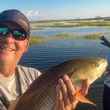
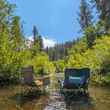
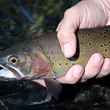
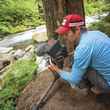
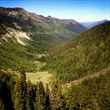
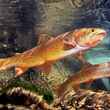

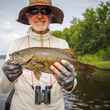
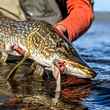

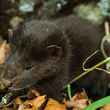

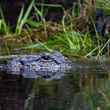

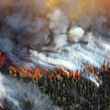


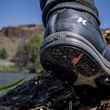
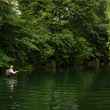
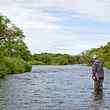
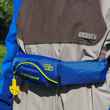

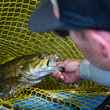
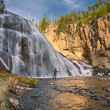
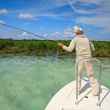
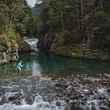
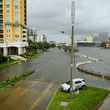
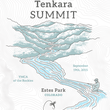
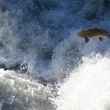
Comments
Isurus replied on Permalink
I would add The Feather Thief, by Kirk Wallace Johnson, and, although he doesn't really write about fly fishing, anything by Timothy Egan. Egan's writing about the American West is phenomenal.
Tom Cohen replied on Permalink
Great list, but although it is a different subject, don't overlook the movies. The River Why is an overlooked treasure--hated by some but adored by others. And don't miss A River Runs Through It, Vice (with its flyfishing metaphors) and Salmon Fishing in the Yemen.
JOSH FRIEDMAN replied on Permalink
If you haven't already done so, read Ted Leeson. I think he's written the finest books about fly fishing.
Jack Regan replied on Permalink
Hatches and Hatches 2 by Caucci said Nastusi.
Tom Williams replied on Permalink
Well done. I have to agree wholeheartedly with the writer that John Gierach's writing on fly fishing, with the casual nod to the struggles of daily life, is the best of the modern era.
John replied on Permalink
The Bamboo Fly Rod Suite is a collection of essays by Frank Soon that is one of the best books I've read. Thanks for the reminder that I need to reread that.
Tony Collins replied on Permalink
'Catch and Release: Trout Fishing and the Meaning of Life' by Mark Kingwell goes well with this list...
"Fishing is not really about fish, in the end--or even the beginning. It's about what we allow ourselves to think, what we see reflected back when we look in the mirror of nature."
It gets me every time.
Anonymous replied on Permalink
Brautigan?
Bob Fornadley replied on Permalink
I read the list of fly fishing "must reads".I enjoyed his writing but of his list , in my library of fly fly fishing of over 60 hard and soft backs , I only found two of his books in my stacks,
"Marinaro's "A Modern Dry Fly Code",
And LaFontaine's " Caddis Flys".
I guess maybe it's because I'm 69 years old and have been a passionate fly fisher for 56 years. Most of the books he recommended were from Western authors about Western rivers. That's great but my reading has always been evenly split between North, South, East and West. My authors of fly fishing "must reads" do NOT include Gierach's works ( heresy, I know) but lean toward Joe Brooks,
Ernie Schwiebert, Mark Sosin, Swisher & Richards, Poul Jorgenson, H.G.Tapply, Lefty Kreh, Flip Pallot, Ted Williams and A.J. McClane. Pick up and read anything from any of these men and you'll have a lifetime of continual, timeless reference that will teach you the evolution of fly fishing, fly patterns, tying materials techniques and tackle through the ages.Everything they wrote about STILL holds tried and true to this day. I applaud this author's topic and I will read most of what he suggests but I think I wouldn't limit myself to them and fishing the West. Oh, I've fished the West a lot and lived in Washington state for 8 years but I'm from Pennsylvania where, both here and in New York, the art and sport were born.
Luke replied on Permalink
No Robert Traver?
Les Bouck replied on Permalink
"I picked The View From Rate Lake for this list"... I believe it is supposed to be "Rat" Lake. Some English literature major... ;->
But I wholeheartedly agree with you on Gierach. I married into baseball, and have been caught more than once vicariously fly fishing with him while a game is going on... :-)
Robert Wright replied on Permalink
Great article! But you forgot Trout Magic and Trout Madness by Robert Traver? I know they're about the Midwest but they qualify for a mention at the very least!
Thanks
Doug Fleming replied on Permalink
Great list,however I would disagree with a river runs through it. Being 57 it made me want to fish and read more about fly fishing. Adds the movie isn't so bad either having read or watched either till 2017. Now if something can be done about the average guy going on a guided trip that doesn't break the bank.thanks
James Rauch replied on Permalink
Another very interesting article Spencer. I have not read any of those books, but I might have to look into some. Thanks, Jim.
TREVOR FAGERSKOG replied on Permalink
A few other books that are entertaining and informative reads that should be in anyone's collection are Trout Madness and Trout Magic by Robert Traver, The Habit of Rivers by Ted Leeson and Halcyon Days by Bryn Hammond.
Jim Kissane replied on Permalink
All but one of those titles in my fishing library (I will have to look for Ian Niall's works), so since I agree with you, you have to be right, right? I daresay that by teaching contemp lit in Alaska your efforts to include outdoor writing would be well-received. I think William G. Tapply (who wrote fiction as well as fishing - which shouldn't stretch the envelope, I suppose), Corey Ford and Ed Zern would be fun additions to the author list. One thing I don't get about lit classes is why they focus only on the good stuff. I think some bad works should be included, just for comparative purposes, to show that, yes, there is a difference between good writing and bad writing. You could get lulled into thinking all reading is good reading if all you ever study are the works of Dickens and Steinbeck and such; there is some merit in reading for reading's sake, but it's good to recognize the difference between literature and litter. As for outdoor writing, pick up some vanity press titles (I humbly offer "Serious Fly Fishing" as a good example of a bad example). Good luck!
Niel replied on Permalink
How could you miss Roderick Haig-Brown?
Edward replied on Permalink
If you'd like to expose your students to outdoor related writing beyond fly fishing, I would recommend Gene Hill
Alan B replied on Permalink
I can imagine most high school students being as bored with LaFontaines Caddisflies as they are with Shakespeare. This book, in my opionion is more of a natural science text in contrast to Gierach's or McGaunes tomes.
Doug Smith replied on Permalink
McGuane did not go to Yale. He went to Michigan State and dropped out of a MFA program at Stanford.
Frank replied on Permalink
Your list is a fine one. I’d be tempted to add one more author to the list, Roderick Haig-Brown. His style of writing is a fine one to emulate. I’d suggest “A River Never Sleeps” as one of his best titles, and an appropriate “first” for anyone interested in rivers and river fishing. If teaching a wider audience, you might also consider “Measure of the Year”, a book of essays on country life. Both are available in paper-back reprints.
FYI. When in school, I was taught by a man who was a superb writer, and exceptionally well-read. He was not really a fisherman, though he enjoyed the outdoors. He always had high praise for Haig-Brown which I found very interesting as he was from Maine.
Lula replied on Permalink
Keep this going please, great job!
Chris replied on Permalink
I would also recommend "The Tent Dwellers" by Albert Bigelow Paine. It's about fishing and hunting, very old (1908) and very charming, humorous. In my humble opinion, the author had a great sense for nature, very remarkable for the time.
Cheers.
Don Wilcox replied on Permalink
I agree with your list, especially "View From Rat Lake". I recently discovered the works of Steve Raymond. He is well known in the Northwest for "Year of the Angler". "Year of the Trout" and Kamloops. In his list of recommend authors he also lists Haig-Brown. Raymonds books are sophisticated, well written, a little dated but well worth reading.
John Rountree replied on Permalink
As a retired teacher, your last paragraph bothers me. First, you have to teach all the students in your class. You can't just look for "the one" that relates to you. So what will you o if students simply don't find 50 year-old books on fishing interesting? Sounds like you intend to "educate" them to your tastes and force them to appreciated what you like. That will likely turn them off to the whole genre of fly-fishing books, and possibly make them resent reading of any kind.
While I understand your enthusiasm and idealism, I think you will find life in the classroom very different from what you imagine as a junior in college.
Jeff replied on Permalink
McManus is spot-on. He shaped my writing, my outlook, and my humor. From child to adult, he is timeless.
Casey replied on Permalink
I'd definitely Body of Water by Chris Dombrowski. That is some of the most lyrically beautiful outdoors writing that also telling an incredible story.
Rex R replied on Permalink
For a change in scenery (the Ozarks of Arkansas no less) I'd suggest "The Earth Is Enough" by the late Harry Middleton. He certainly had his fans, Nick Lyons being one.
Good luck with figuring out what is true and what is not in the story (if you are so inclined). Took me about ten years. He definitely was trying to channel Hemingway with this book.
George Bischoff replied on Permalink
Two things; first, Bob Popovics...the discussions behind fly design are enlightening, even if more directed toward saltwater...reflective of Bob Clouser's observations leading to his use of certain colors (purple for certain baitfish). Second, as a balance to John Rountree's comments, I am a current teacher, and anything to helps you connect to students is worth the effort, and presenting something different, nay unusual, to your students may grab more than expected. Nothing grabs all, ever.
Mike Duffish replied on Permalink
Ian Niall was Scottish, not Welsh. Great writer though. To the list - topmost in fact - you can put Jonah's Dream by Sven Berlin. Magical.
NP replied on Permalink
Ernest Hemingway's "Big Two Hearted River" parts I and II.
Robert Reid replied on Permalink
I think Harry Middleton's The Earth Is Enough and On the Spine of Time, along with Rivers of Memory and In That Sweet Country, constitute in their totality the best fly angling literature America has produced. I know this is anathema for those who justly admire Maclean, Duncan, Wetherwell, Traver, Hemingway, Leeson, McGuane, Harrison, Kustich, Shepard et al. Canada's David Adams Richard's wrote a beauty titled Lines on the Water.
JIm Pedley replied on Permalink
I knew and worked with Gierach in Colorado in the 1980s. I was his editor at a daily paper where he was fishing columnist. I looked forward to his copy arriving. It was amazing. Gold every week. As good as classic lit I read in college.
We'd go out for beers and he made me feel like an intellectual lightweight even though I was a dean's in history list student in history at a top-15 university.
He lived in a small cabin on the St. Vrain River. This guy lived the life. I was supposed to be molding him. He molded me.
GREAT writer of great books.
WILLIAM S replied on Permalink
To keep this list from being dead poets society- add Seth Norman’s works (all), well as James Prosek’s “fly fishing the 41st parallel (ok not technically American west-but it’s flyfishing), and Michael Checchio’s “a clean well lighted stream” would be the equivalent of hemmingways “in our time” . Richard Brautigan’s “trout fishing in America” has pages missing in my house. Add Trey Combs’ “steelhead” as well as Robert H Smiths “native trout of North America” to quintessential western fly fishing literature IMO
Pages